- Mr. Kim Young-jae, an alumnus of Hanyang University and a professor at KDI School of International Policy and Management
- Conducts research in environmental economics, energy policy, and applied microeconomics
- His advice for undergraduate students emphasizes communication in the broader world and the importance of diverse experiences
The KDI School of Public Policy and Management is a graduate school affiliated with the Korea Development Institute (KDI). It serves as a research institution responsible for economic development policies, bringing together economists to contribute to economic development, and is the first Think tank in the field of social sciences. We talked with Kim Young-jae (Department of Mechanical Engineering, class of ‘00), who conducts research as an environmental economist at the KDI School of Public Policy and Management while teaching students.
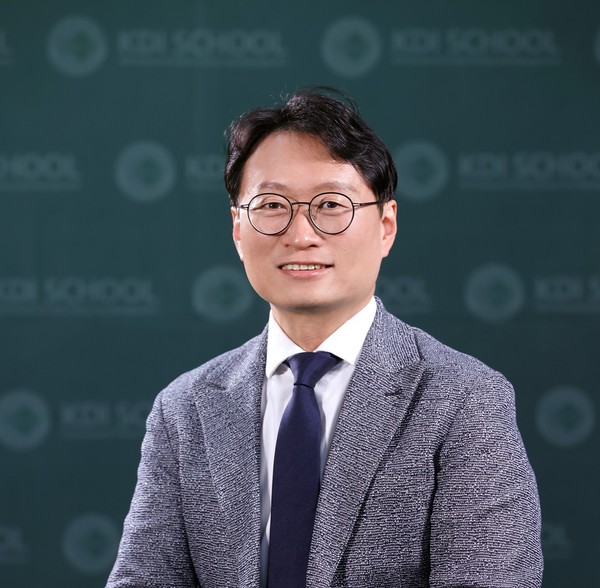
What is KDI School of Public Policy and Management?
The Korea Development Institute (KDI) is an economic policy research institution established in March 1971. It supports the formulation of economic policies tailored to our circumstances based on scientific analysis, aiming for a self-reliant economy. Over the past 50 years, KDI has expanded its research areas to macroeconomics, finance, fiscal policy, and various aspects of the economy and society, contributing to rational policy-making and institutional reforms. Among them, the KDI School of Public Policy and Management, to which I belong, was established in 1997. It is dedicated to educating experts who lead future social innovation as a global hub for public leadership education, emphasizing the training of global public leaders.
Please introduce the field of study and research you are currently engaged in.
I am conducting research in environmental economics, energy policy, and applied microeconomics. As an environmental economist, I teach students about energy, climate change policies, and carbon neutrality policies.
Please provide an explanation about your recent publications and ongoing research.
I recently conducted research on the cost trends of renewable energy and nuclear energy over time, examining the factors contributing to cost reduction and analyzing the competitiveness of the South Korean energy industry compared to other countries. I also presented the direction that the energy industry should take in response to policy changes.
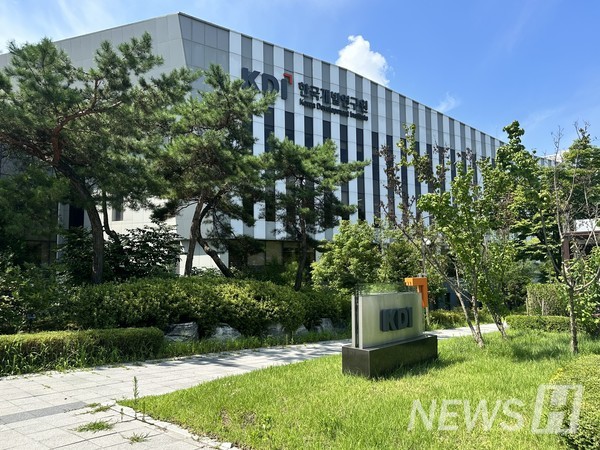
While your major was in engineering, you are currently researching in the field of energy and environmental economics. Could you please explain how you choose this research area?
During my undergraduate years, I had the opportunity to study abroad as an exchange student at the University of Texas at Austin in the United States. It was there that I first encountered the field of energy and developed a keen interest in it. After graduating, I joined the Environmental Management Strategy Team at the headquarters of Hyundai Motor Company, where I was responsible for establishing greenhouse gas inventories. As I delved deeper into this field, my passion for it grew. I furthered my studies through experiences in the United States and Europe, eventually leading me to my current position. Additionally, I found more interest in economics and policy aspects rather than purely engineering, which influenced my decision to choose this field.
Your experience as an exchange student during your undergraduate years seems to hold a special place in your memories. Could you please tell me about your time as an exchange student?
Being an exchange student was truly a remarkable stroke of luck for me. It greatly contributed to my ability to pursue and teach in my desired field. Living alone in a foreign country brings about many unexpected challenges, and learning to cope with these variables and adapt has been a significant source of personal growth. I believe that venturing abroad, living in a different language, and meeting a wide array of people in a vast world can greatly assist in exploring one's career path.
Furthermore, my exchange student experience occurred during the time when President Lee Ki-jeong was serving as the Vice President for External Relations and Development. During this period, the number of exchange students significantly increased, enabling me to study abroad at the foreign university of my choice. I am forever grateful to President Lee and the dedicated staff for making this opportunity possible.
I'm curious about what made you study again after working at a major corporation.
In reality, the decision to return to studying after landing a desired position at a major corporation wasn't an easy one. There was strong opposition from family and people around me as well. However, what drove me to choose further education was nothing but my passion and determination. I had a genuine interest in the field of energy and felt that I couldn't forgo without studying it. With a profound affection for this field and a deep interest, even after a decade, I continue to engage in research with unwavering enthusiasm
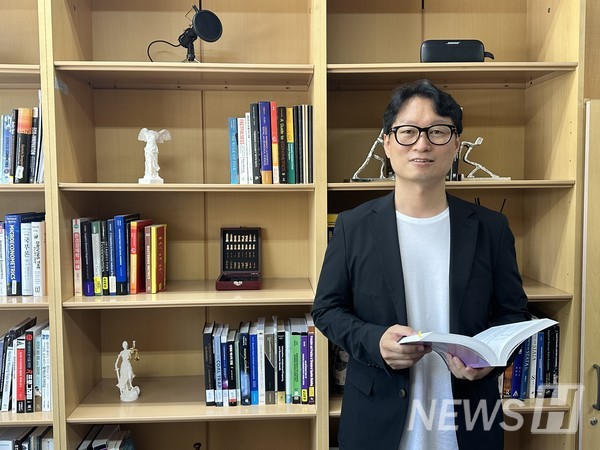
I'm curious about your time at Hanyang University. Do you have any memorable anecdotes from your undergraduate years at Hanyang University?
I studied diligently, but what stands out in my memory from my university years are the various activities I engaged in. During my sophomore year, I participated in a housing environment improvement volunteer club called "Habitat," which left a lasting impression. Due to my affinity for English, I was involved in many English-related activities. I volunteered for EBS English broadcasts and worked as a teaching assistant for English classes. I was also actively involved in an English debate club.
Engaging in diverse activities and interacting with different people greatly aided me in exploring my career path. It wasn't just about participating in clubs; it was about connecting with people, communicating, and experiencing a broader world. These experiences have been immensely beneficial to me.
In 2020, you made an academic presentation at Hanyang University's Graduate School of Technology & Innovation Management. How was your experience presenting your research at your alma mater?
I presented on the topic of “The Ripple Effects of Low-Carbon Green Technology Knowledge” at Hanyang University's Graduate School of Technology & Innovation Management in 2020. The presentation focused on the idea that disseminating knowledge about renewable energy has a greater impact than simply enhancing the efficiency of conventional internal combustion engines. To illustrate this, I quantified evidence for why investment in low-carbon green energy is more advantageous than internal combustion engine investments. Utilizing these quantified values, the research presentation suggested a direction for government policies and investment strategies.
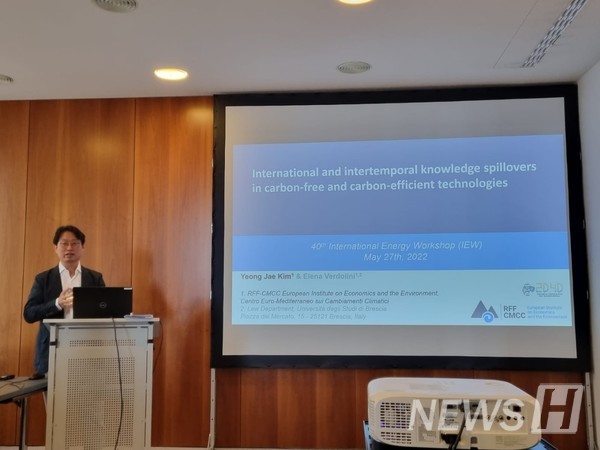
Looking at your footprint, the term that comes to mind is “integrated talent in both humanities and sciences.” If you were to provide advice on the studying mindset and orientation that students should possess in the future, what would it be?
I believe that studying in the direction of becoming an “integrated talent in both humanities and sciences” is beneficial. While it may be challenging to specialize in both fields extensively, I think it's important to explore a variety of subjects within a flexible learning environment.
For instance, a student majoring in engineering could take humanities courses to build related knowledge. Ideally, if students were able to accumulate a certain number of credits in these subjects, they could apply them toward their graduation. I see this as an ideal approach. Hanyang University's diverse major system seems to foster such an atmosphere. I hope that students actively utilize these relevant provisions to broaden their studies even further.
Please tell me about your research goals or directions.
I have conducted extensive research in the field of energy. Currently, I am researching the widespread adoption of electric vehicles in Korea, and I am also collaborating with international researchers on resource circulation policies. Most of my ongoing research is closely related to climate change policies. I am striving to find answers on how we can achieve carbon neutrality by 2050.
Furthermore, having spent a significant amount of time studying and researching abroad, I've noticed a potential lack of emphasis on Korean-focused research. In the future, I plan to shift my focus toward researching Korea's energy policies more extensively.
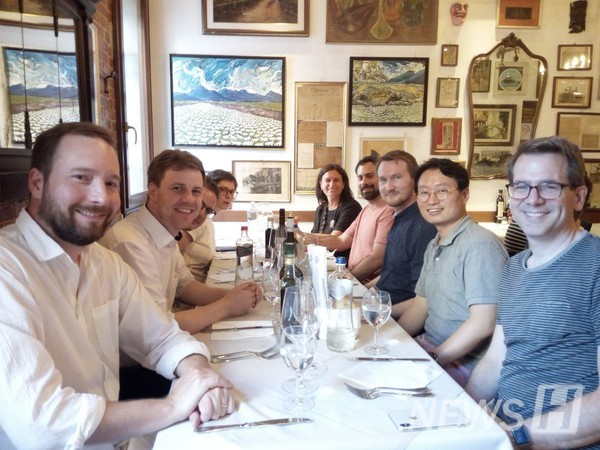
I kindly request a piece of advice and a word of encouragement for the junior students at Hanyang University.
Having a strong determination is incredibly important. If you have something you truly want to pursue, you will find a way to make it happen. During your university years, gather various experiences and use them as a foundation to discover what you are truly passionate about. It's my hope that you explore and find your true calling based on these experiences.


 '한양위키' 키워드 보기
'한양위키' 키워드 보기